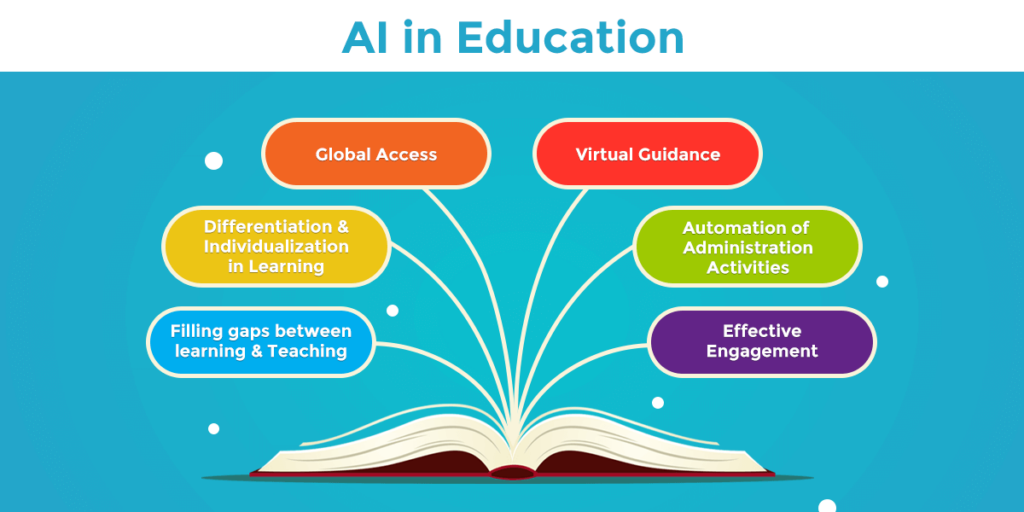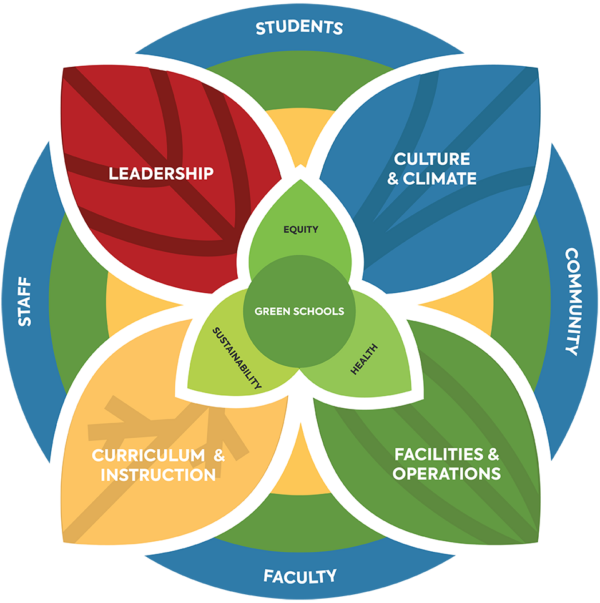Summary
- Build effective professional development topics by offering your educators training that is relevant.
- Embrace AI in education for personalized learning and administrative efficiency, while addressing ethical implications.
- Prioritize DEI to ensure every student feels represented and valued, fostering cultural competence and equity.
- Integrate sustainability into curriculums to promote civic engagement and global citizenship, preparing students for future challenges.
- Address educators’ health and well-being to create supportive learning environments and enhance student engagement.
- Enhance communication skills and cybersecurity awareness to adapt to the digital age, ensuring effective and secure digital interactions.
- Develop soft skills among educators to foster emotional intelligence, adaptability, and positive classroom environments.
Professional development is never static. It’s ever-changing, like music or fashion. What is important today might not be important tomorrow.
If you don’t keep up to date with what’s relevant, your educators and students suffer.
Read on for ideas to build diverse, relevant, and tantalizing professional development events!
AI: the professional development topic that is here to stay!

AI has landed. You can’t deny it. It has been having a positive and negative impact on education.
Instead of running from it, educators need to run with it. Because half of high school students are already using AI in their assignments. Here are some of the long-term benefits for educators and students:
- Students (47%) and teachers (48%) say AI technologies have had a positive impact on the student learning experience
- Personalized learning
- Automation of administrative tasks:
- Data analysis and insights
- Enhanced accessibility (42% of all respondents report that AI creates a more equitable system)
AI professional development topics in Action
There are already examples of AI professional development events you can learn from. For example, look at Future Ready Brains.
Here are some AI workshop ideas you can think about implementing at your professional development events:
- AI-powered personalized learning: Help educators understand how AI can lead to learning pathways tailored to individual student needs.
- Data literacy and analytics training: Build skills in interpreting and using educational data. This can better help them to identify learning trends, measure student progress, and make data-informed instructional decisions.
- AI-Integrated classroom technologies: Showcase AI-powered educational technologies to enhance learning outcomes.
- Ethical AI and digital citizenship education: This promotes responsible and safe use of technology. Plus, it fosters critical thinking about AI-related issues.
These workshop ideas require a good deal of knowledge about AI. However, what if you don’t have someone in your department with the expertise to tackle the topic?
You can always call for help. Find and secure the perfect speaker for your educators. Learn how to launch a call for speakers at your professional development events.
BONUS ADVICE – We’ve built a cheat sheet to simplify your event management with AI: 90+ event planning prompts for ChatGPT!
timeless professional development topics: Diversity, equity, and inclusion
Diversity, equity, and inclusion (DEI) is a topic that has been important to educators and students for a long time.
As many as 26% of students still think schools need to build better strategies regarding DEI.
Here are the key benefits of DEI in education:
- Cultural awareness and respect
- Improved critical thinking
- Reduced achievement gaps
- Empowerment and representation
- Social and emotional well-being
DEI professional development ideas in action
DEI is a firm fixture in professional development events. For example, check out how Jesuit High School used Sched to foster social justice.
You can do it too. Here are some DEI workshop ideas you can implement yourself:
- Cultural competence training: Help educators understand diverse perspectives. This enables them to create inclusive learning experiences.
- Equity and anti-bias training: Training that addresses implicit bias and systemic inequities ensures students have equal access to success.
- Inclusive curriculum development: Workshops focused on creating inclusive curricula help educators provide a representative learning experience for students.
- Gender and LGBTQ+ inclusion workshops: Provide educators with the knowledge and tools to create inclusive spaces. With this, they can foster a supportive and affirming environment for all students.
- Parent and community engagement: Help educators build strong partnerships with parents from various cultural and linguistic backgrounds.
Sustainability

Professional development events that explore sustainable business practices are more relevant than ever.
And it’s not just a cleaner environment that is up for grabs. Research from Standford University suggests that engaging in sustainable education and practices leads to further outcomes for students:
- Improved academic performance
- Enhanced critical thinking skills
- Personal growth and life-building skills
- Increased civic engagement
Sustainability and professional development events in Action
If you’re not sure how cool sustainability in professional development events looks like. Check out the University of New Hampshire. They have a great program of professional development and sustainability.
As a starting point, here are some session ideas you can implement in your event planning very easily:
- Environmental Education Workshops: Equip educators with the knowledge and resources to integrate sustainability concepts into their teaching. This will foster environmental literacy among students.
- Green School Initiatives: Training programs such as waste reduction, and energy conservation create sustainable learning environments.
- Outdoor and Environmental Learning: Hands-on, nature-based learning activities promote a deeper understanding of sustainable practices.
- Community Engagement for Sustainability: Community engagement strategies encourage sustainability initiatives and environmental stewardship within the school community.
- Global Citizenship Education: Educators can participate in training that centres on global citizenship education. This training highlights how environmental, social, and economic issues are interconnected. It empowers students to become drivers of positive change in their local and global communities.
These ideas are a solid start. However, to help them reach their full potential, check out these amazing hacks for mastering in-person event planning.
Create and Customize Your Event Schedule with Sched | Engage Your Participants! from Sched Support on Vimeo.
Health and well-being
Over 85% of teachers feel there’s not sufficient support to avoid stress or burnout. Effective professional development events are about responding to your educator’s needs. Therefore, health and well-being are topics you must cover.
Health and well-being are crucial. They directly impact your educator’s ability to create a positive and supportive learning environment.
Educators who prioritize their well-being are better equipped to support students’ navigating stress and foster a culture of well-being within the school community, and more:
- Higher teacher efficacy
- Positive role modeling
- Supportive learning environment
- Enhanced student engagement
Health and well-being professional development ideas in Action
If you want to see health and well-being in action, check out the story of the California Student Wellness Conference.
You can also deploy some of these session ideas to empower your educators.
- Work-Life Balance Seminars: Workshops that focus on work-life balance help educators create a sustainable approach to their professional responsibilities. This reduces burnout and enhances overall well-being.
- Mental Health Awareness Workshops: Help educators recognize signs of stress and burnout. This will equip them with coping mechanisms to manage their mental well-being.
- Physical Wellness Initiatives: Physical wellness can support educators in maintaining a healthy lifestyle. This will help them manage the physical demands of their profession. Think of classes such as yoga sessions, mindfulness training, or nutrition workshops.
- Stress Management Training: Professional development workshops that provide stress management techniques also help educators maintain a healthy work-life balance.
- Trauma-Informed Practices: Training in trauma-informed practices equips educators with the skills to support students who have experienced trauma. It also promotes their emotional well-being.
BONUS ADVICE – Say you get someone in to talk about health and well-being for your professional development events. To ensure you get the best out of them, and build a lasting relationship, you need to avoid the most common mistakes with managing event speakers.
Communication skills
Good communication skills are a timeless asset. Studies have consistently shown that improving communication skills through professional development events benefits students in the long run in several ways:
- Enhanced student motivation
- Enhanced student engagement
- Stronger teacher-student relationships
- Clarity in instruction and expectations
- Supportive classroom environment
- Preparation for real-world communication
Communication skills and professional development events in action
- Active Listening Workshops: These workshops improve empathetic understanding and non-verbal communication. This helps teachers understand students’ needs and concerns.
- Effective Feedback and Assessment Communication: Workshops can explore strategies for providing constructive feedback to students, fostering a growth mindset, and communicating assessment results in a supportive and empowering manner.
- Cultural Competence and Inclusive Communication: Educators can benefit from workshops that promote cultural competence, inclusive language use, and effective communication in diverse classroom settings to create an inclusive and respectful learning environment.
- Collaborative Communication Strategies: Workshops can emphasize collaborative communication strategies to enhance teamwork, promote effective parent-teacher communication, and foster positive relationships with colleagues and administrators.
- Technology and Digital Communication Skills: Educators can engage in workshops focused on leveraging technology for effective communication, including using digital platforms for student engagement, parent communication, and collaborative projects.
You’ve probably seen some of these topics covered at other professional development events you’ve attended.
Learn to turn those experiences into better events on your end. Read these lessons on what event planners can learn from attending other events.
Cybersecurity
As cyber threats become more sophisticated, educational organizations are prioritizing cybersecurity.
Public K-12 schools in the United States have been victims of over 1,600 cyber incidents. This causes considerable disruption to students and educators.
Cybersecurity professional development ideas for teachers
See how Sched helped Digital Promise promote digital learning. You can get in on the action too, if you adopt cybersecurity education ideas like these:
- Customized cybersecurity training: Educate educators on the importance of cybersecurity, tailored to their specific roles and responsibilities within the educational ecosystem.
- Cyber threat awareness and response strategies: Equip teachers with the knowledge and tools to recognize, respond to, and educate students about potential cyber threats.
- Secure educational technology integration: Introduce secure, cutting-edge technologies that enhance the learning experience while safeguarding user data.
- Ethics and responsibility in the digital age: Promote ethical conduct online and responsible use of digital resources, emphasizing the importance of protecting personal and institutional data.
On the note of cybersecurity, make sure to protect your professional development events. For starters, don’t overlook these common event privacy pitfalls!
How to Use Sched’s Privacy Controls to Customize Your Event Setup from Sched Support on Vimeo.
Soft skills
Incorporating soft skills in professional development for educators is crucial for educators. Educators who possess strong soft skills can effectively connect with students and collaborate with colleagues.
Research from the Learning Policy Institute indicates that teachers’ soft skills, such as emotional resilience, stress management, and adaptability, are crucial for job satisfaction and retention.
And the benefits for their students are huge:
- Teachers who focus on important people skills are great role models for students
- Teachers with strong people skills can build strong bonds with students
- Soft skills lead to improved social and emotional learning
- Teachers with good people skills can make classrooms more positive and welcoming. Students feel important, listened to, and eager to take part in learning.
- Teachers who focus on these skills can help students prepare for what’s ahead.
Soft skills and professional development events in action
- Emotional Intelligence Training: Empower teachers to recognize to empathize with the emotions of their students. This will lead to more supportive and inclusive interactions.
- Effective Communication and Active Listening: Active listening equips educators with the skills to convey information clearly, and engage in empathetic listening. This empowers them to build a strong rapport with students, parents, and colleagues.
- Collaboration and Teamwork Skills: Educators can engage in workshops that emphasize collaboration, teamwork, and conflict resolution. This fosters a positive and cooperative learning environment.
- Creativity and Adaptability Workshops: This empowers teachers to develop innovative teaching strategies, and adapt to diverse learning needs. The results will be engaging classroom environments.
- Resilience and Stress Management: Training in stress management helps educators navigate the challenges of their profession. They will be able to maintain a positive and supportive attitude for themselves and their students.
It isn’t easy building on these ideas. Especially balancing them with the rest of your schedule and your other event-organizing duties.
But with our guide to creating an effective event agenda, your professional development events will become much smoother!
The takeaways
- Embrace AI in education for personalized learning and administrative efficiency, while addressing ethical implications.
- Prioritize DEI to ensure every student feels represented and valued, fostering cultural competence and equity.
- Integrate sustainability into curriculums to promote civic engagement and global citizenship, preparing students for future challenges.
- Address educators’ health and well-being to create supportive learning environments and enhance student engagement.
- Enhance communication skills and cybersecurity awareness to adapt to the digital age, ensuring effective and secure digital interactions.
- Develop soft skills among educators to foster emotional intelligence, adaptability, and positive classroom environments.
Now you’re ready to build professional development events that are super relevant to your educator’s needs. And with the right event planning software, the benefits for your students will be even greater. So try Sched for free, and make your event organizing smoother than ever!
